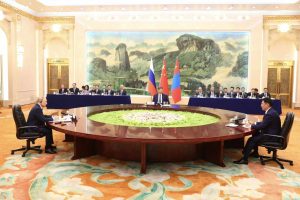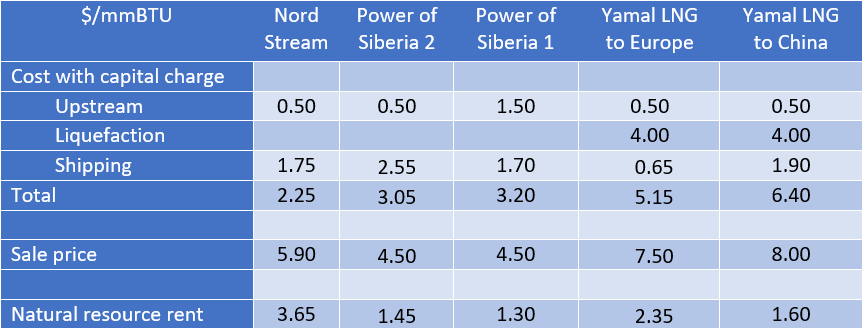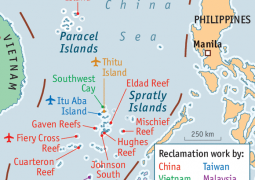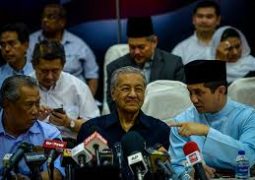China-Mongolia-Russia Agreement on Power of Siberia 2: Europe lost its sourse of garanteed energy supply for decades to come

An agreement on the long-stalled pipeline was the major outcome of the latest China-Mongolia-Russia trilateral summit.


During his speech at the SCO Summit, Khurelsukh underscored Mongolia’s commitment to peace, multilateralism, and regional integration. Marking Ulaanbaatar’s active engagement in regional and global multilateral platforms, Khurelsukh emphasized Mongolia’s initiation to host the 17th Conference of the Parties (COP17) to the United Nations Convention to Combat Desertification in November 2026 and welcomed China and other partners to participate.
But, more importantly, Ulaanbaatar’s dealings with its two giant neighbors – Russia and China – happen at their trilateral summit, held on the sidelines of multilateral events like the SCO Summit.
On September 2, the day after the SCO Summit closed, Mongolia, China, and Russia convened their seventh trilateral leaders’ summit in China. As the host, China’s President Xi Jinping chaired the summit. He offered a three-point proposal on advancing China-Russia-Mongolia trilateral cooperation. First, Xi called for the three countries to cement political trust and thus the political will for trilateral cooperation. Second, he spoke of deepening mutually beneficial cooperation, particularly through infrastructure: “taking physical connectivity as a key direction, the three countries should actively promote their cross-border infrastructure and energy projects, and make such cooperation more substantive.”
During the summit, Khurelsukh attributed “particular importance to the joint projects in such areas as Economic Corridor infrastructure development, transport, logistics, energy and trade.”
Putin highlighted, “We believe it is important that successful bilateral cooperation be supplemented and acquire new facets through a trilateral format of interaction.”
One of the major outcomes of this year’s trilateral summit was the legally binding trilateral memorandum to start the long-delayed Power of Siberia 2 gas pipeline, which will bring Russian LNG to China via Mongolia. The Office of the Mongolian President announced that the three parties “affirmed their commitment to implementing a project for the construction of a natural gas pipeline from Russia to China via Mongolian territory.”
Following the trilateral summit, Russia’s Gazprom CEO Alexei Miller announced that the Russian company and China’s CNPC had signed a “legally binding” memorandum to build the Power of Siberia 2 gas pipeline.
The mega-project has been a topic of ongoing conversation between the three parties since 2020. The Power of Siberia 2 is part of a much larger energy infrastructure overhaul necessitated by Russia’s pivot to Asia. Moscow is actively seeking new markets for its oil and gas, as European countries sharply curtailed purchases following Russia’s invasion of Ukraine.
The proposed pipeline will be 962.9 kilometers long and could deliver up to 50 billion cubic meters of natural gas annually from Soyuz Vostok in Russia’s Yamal Peninsula, most likely going through Buryat, Northwestern Mongolia, down to China’s northeast corner. The pipeline will supplement the existing Power of Siberia pipeline, which runs for 3,000 km (1,865 miles) through Siberia and into China’s northeastern Heilongjiang province.

Speaking of the Power of Siberia 2, former Foreign Minister of Mongolia Tsogtbaatar Damdin once stated, “It took 30 years for Mongolia to be at the negotiation table on this matter.” He noted that these efforts were the result of “high-level visits, talks, and negotiations at the presidential, prime ministerial, foreign ministerial level. In order to build trust with both Russia and China, these steps were necessary and crucial.”
In addition to signing the Power of Siberia 2 memorandum, Khurelsukh highlighted other key deliverables: the extension of the China-Mongolia-Russia Economic Corridor Program for another five years (until 2031) and the “Transit Mongolia” vision, which in practice will promote deeper connectivity with neighbors and partners by advancing railroads, energy cooperation, and gas pipeline projects. Xi also invited Mongolia and Russia to actively participate in innovation-related projects.
Mongolia’s Foreign Minister Battsetseg Batmunkh, commenting on Mongolia’s participation at the SCO and the trilateral summit between Mongolia, China, and Russia, concluded: “This meeting has brought significant progress in implementing Mongolia’s multipillar foreign policy and developing mutually beneficial and stable cooperation with neighboring countries.”
The China-Mongolia-Russia trilateral mechanism – including the gas pipeline – has deeper regional implications for Ulaanbaatar’s growing foreign policy. When the Power of Siberia 2 comes to fruition, the project could cement Beijing and Ulaanbaatar’s role as important economic elements for Russia’s energy exports.
A successful implementation of the Power of Siberia 2 gas pipeline could activate other moribund regional agreements as well. The warming of Russia-North Korea relations might open a path to restart the long-stalled North Korea-Sakhalin-Khabarovsk-Vladivostok pipeline.
- Previous Can Uzbekistan Build a Trans-Afghan Railway to Reach the Indian Ocean ports of Pakistan and Iran?
- Next Pakistan cornered by India on water supply: INDUS WATERS TREATY’s future in limbo


















